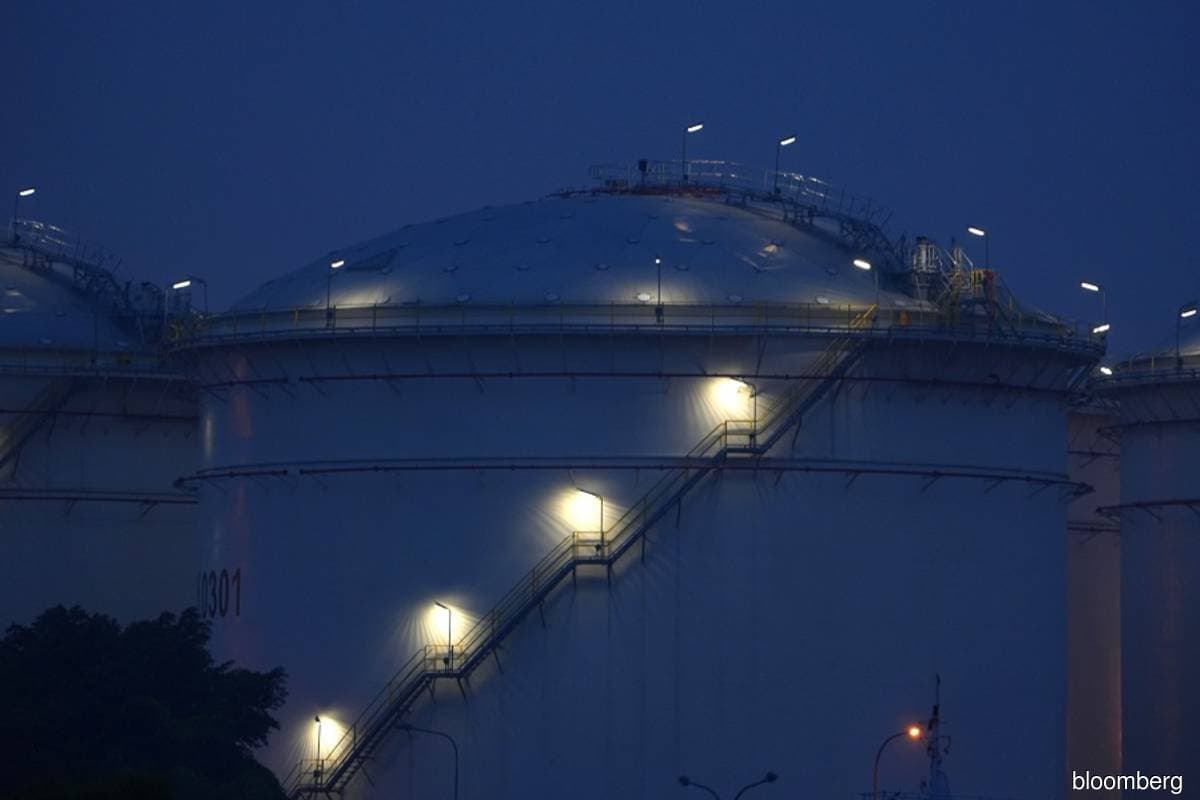
LONDON (March 28): Oil prices firmed on Thursday, following two consecutive sessions of decline, as investors saw a tighter supply outlook ahead, while the Opec+ producer alliance was widely expected to stay the course on its current production cuts.
Brent crude futures for May were up 91 cents, or 1.1%, at US$87 a barrel, while the more actively traded June contract rose 75 cents, or 0.9%, to US$86.16 at 1101 GMT. The May contract expires on Thursday.
US West Texas Intermediate (WTI) crude futures for May delivery were up 89 cents, or 1.1%, to US$82.24 a barrel.
Both benchmarks were on track to finish higher for a third consecutive month.
In the prior session, oil prices were pressured following last week's unexpected rise in US crude oil and gasoline inventories, driven by a rise in crude imports and sluggish gasoline demand, according to Energy Information Administration data.
However, the crude stock increase was smaller than the build projected by the American Petroleum Institute, and analysts pointed out that the increase was lower than what would be expected for this time of year.
"We ... expect US inventories to rise less than normal in reflection of a global oil market in a slight deficit," SEB analyst Bjarne Schieldrop said. "This will likely hand support to the Brent crude oil price, going forward."
Also providing support to prices were US refinery utilisation rates, which rose 0.9 percentage points last week.
Recent disappointing inflation data affirms the case for the US Federal Reserve to hold off on cutting its short-term interest rate target, a Fed governor said on Wednesday, but he did not rule out trimming rates later in the year.
"The market is converging on a June start to cuts for both the Fed and the European Central Bank," JPMorgan analysts said in a note. Lower interest rates support oil demand.
Investors will watch for cues from a meeting next week of the Joint Monitoring Ministerial Committee (JMMC) of producer group the Organisation of Petroleum Exporting Countries (Opec), amid supply concerns over geopolitical risks.
Opec+ is unlikely to make any oil output policy changes until a full ministerial gathering in June.
"[We] do not see any indications that the recent run-up in prices due to the heightened Russian infrastructure risk will prompt any policy reversal at next week's JMMC meeting." RBC analyst Helima Croft said.
"Any serious shift will likely have to wait until the June 1 ministerial meeting, and even then, we believe the group will be very judicious when it comes to unwinding any cuts."